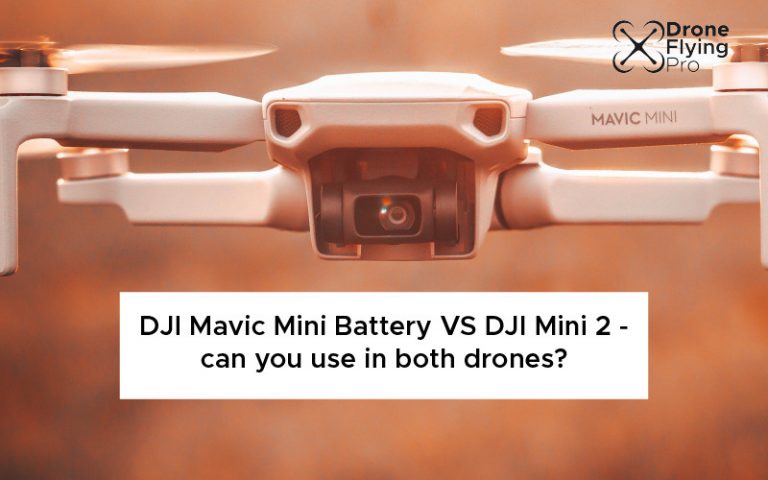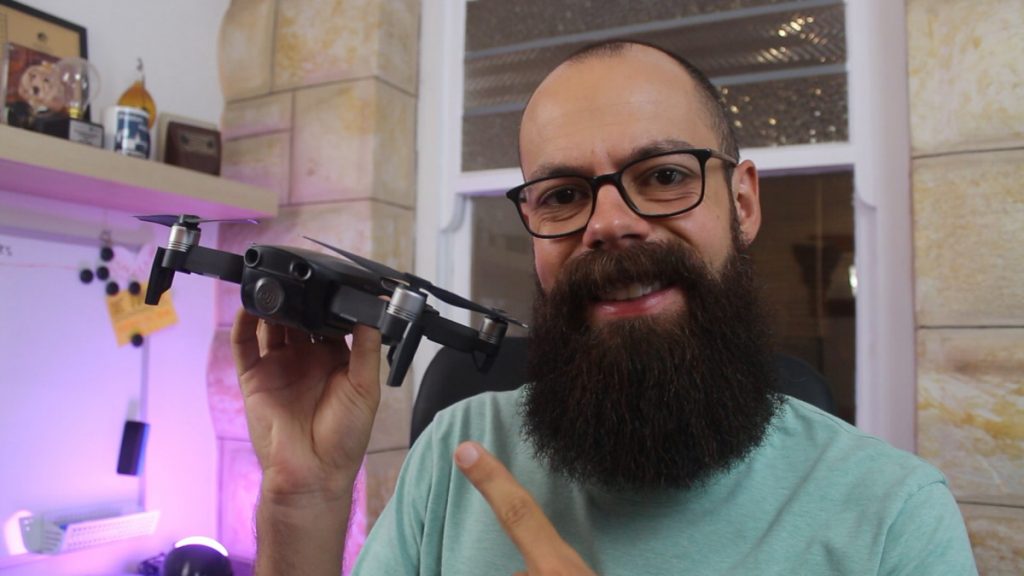The mini range of DJI drones are such good beginner drones with up to 4k resolution, zoom features, and long flight time, all packaged down into a drone that weighs 249g.
It’s no surprise that people are upgrading. Did you just get yourself a new Mini 2 DJI drone, and are wondering if you will need to purchase a new battery for the device? After all, if you had a DJI Mini drone, the original version, shouldn’t you just be able to use the same intelligent flight battery again?
The DJI Mini battery is not the same as the Mini 2; it is therefore not recommended to use the original DJI Mini drone battery with the DJI Mini 2 drone. Ultimately, they are different battery types and using them interchangeably can cause severe deterioration of the drone over time.
The Mini 2 uses LiPo batteries while the original Mini uses Li-Ion batteries. While the international version of the DJI Mini 2 could potentially use the Mavic Mini’s battery, it is not recommended to do so.
Do you want to find out more about the DJI Mavic Mini and the DJI Mavic Mini 2 batteries? In this article, we will discuss both of their specifications, along with their chargers, and answer the question – are they the same?
Is the DJI Mini Battery and Mini 2 Battery Interchangeable?
Because the DJI Mini 2 is a duplicate of the original Mavic Mini, many users have wondered if the two batteries can be used interchangeably. While it may seem like this would be an easy yes, the answer is not as simple as it may seem.
For one, we need to understand what each of the DJI Mini batteries were released as. The lithium polymer batteries we first saw were an international offering with the DJI Mini. If you have the international version of the DJI Mini, you can therefore use the same batteries in the Mini 2. However, this is not recommended.
This is because the power of the drone will gradually decrease and you will see a reduction in the battery life. Additionally, using older batteries on the DJI Mini 2 can exceed the weight of the drone to 250g, which, depending on your region, may open you up to having to be registered in order to be able to operate the DJI Mini 2 drone.
With the other version of the battery, there is absolutely no way you can use the old batteries for the new DJI Mini 2 drone. This is because lithium ion and lithium polymer batteries (lipo batteries) are not compatible with each other. Using them together can cause deterioration of the battery and the drone system over time.
About the DJI Mini Battery
Although the DJI Mini is no longer distributed by DJI, you may still have an old model lying around. Most commonly, this model utilized a 2400 mAh lithium-ion battery, but there was an option to use an 1100 mAh battery that was lithium polymer based. Here are the specifications of the two batteries that were available for the DJI mini:
| Feature | 1100 mAh Battery | 2400 mAh Battery |
| Capacity | 1100 mAh | 2400 mAh |
| Voltage | 7.6 V | 7.2 V |
| Battery Type | Lithium Polymer | Lithium Ion |
| Energy | 8.36 Wh | 17.28 Wh |
| Weight | 50 g | 100 g |
| Temperature Range | 5° to 40°C (41° to 104°F) | 5° to 40°C (41° to 104°F) |
| Charging Power | 18 W | 18 W |
As you can see, there is a general similarity between the two batteries. However, the second type of battery obviously offered a lot more energy, which came at the cost of weight. The first battery stands out because of its lithium polymer design, the weight at 50 g, which is nearly half of the other battery, and a voltage requirement of 7.6 V.
On the other hand, the 2400 mAh battery was a lithium ion battery, and could produce energy at 17.28 Wh. Aside from this, the charging temperature range of both batteries is similar, set at around 5-40 degrees Celsius, or 41-104 degrees Fahrenheit. Both batteries have a maximum charging power of 18 W.
The DJI mini battery also had a charger that it was compatible with, which had an input rating at 100-240 V, at 50/60 Hz, and 0.5 A, On the other hand, the output was 1.5 A at 12 V, 2 A at 9 V, and 3A at 5V. The rated power of this charger matches up with the batteries at 18 W, which means you can charge them relatively quickly with this charging device.
About the DJI Mini 2 Battery
The DJI Mini 2 is the expansion of the original Mini drone by DJI. This new drone comes packed with a lot more features, and the battery reflects this change as you can see in the specifications that are listed out in the table below:
| Feature | Rating |
| Capacity | 2250 mAh |
| Voltage | 7.7 V |
| Battery Type | Lithium Polymer |
| Energy | 17.32 Wh |
| Weight | 86.2 g |
| Temperature Range | 5° to 40°C (41° to 104°F) |
| Charging Power | 29 W |
DJI’s battery has changed significantly with the newer model of the Mini 2 drone.
The battery has a capacity of 2250 mAh, and a voltage rating of 7.7 V. The battery type is a Lithium polymer battery, which has an energy output of 17.32 Wh.
Additionally, this battery has a weight range of 86.2 g, which keeps it relatively lightweight, and it charges at a temperature range between 5 to 40 degrees Celsius, or around 41-104 degrees Fahrenheit, similar to the other two batteries we talked about above. However, the major difference you see in these two batteries is that of the charging power.
The DJI mini 2 battery has a maximum charging power of 29 W.
Although it uses a similar charger to the Mini, the battery is significantly different, with changing weights, outputs and energy requirements. It is also important to note that the type of battery is different.
Here are some tips on taking care of your DJI Mini 2 battery:
Final Thoughts
Both drones are incredible pieces of technology. They have some impressive specifications that make them a great choice for anyone looking to invest in a good-quality drone battery.
However, it is important to note that these two drones are very different when you look at the specifications and trying to interchange them could be problematic or even dangerous to your drone’s health.
It is, therefore, best to make sure that you are using the right type of batteries for your respective drone models.




